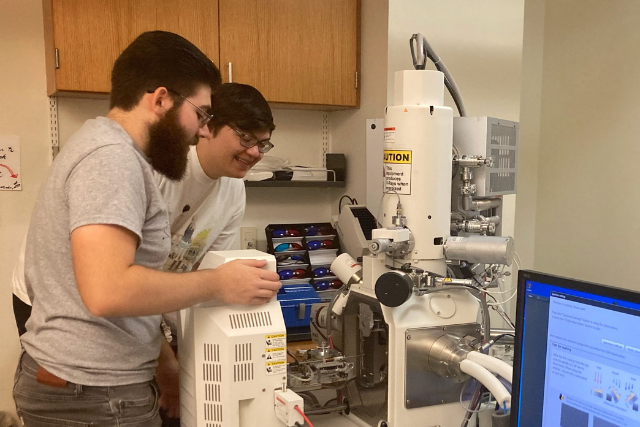TCNJ physics professor Angie Capece has been awarded a $728,715 grant from the U.S. Department of Energy to study the formation and growth of nanoparticles.
Capece, along with a team of TCNJ students, will investigate potential ways to create silver nanoparticles using a bench-top plasma source, which is more environmentally sustainable than using conventional chemicals.
This approach could potentially benefit medical and diagnostic fields, including therapeutics and drug delivery.
Capece’s students will create nanoparticles in a wide variety of sizes that they will study and observe using the college’s state-of-the-art scanning electron microscope. Through this three-year project, students will gain expertise in operating plasma sources, creating nanoparticles, and using nanoscale imaging techniques.
“Our students are among the next generation of scientists, and this grant will provide them with exciting and important lab experiences,” Capece said. “Working on authentic research projects has a big impact on our students and shapes their future careers in science.”
“Working on this project will help me to improve my problem-solving abilities and get important hands-on experience in the lab,” said physics major Kevin Hoppe ’25. “I’m wavering a little bit on if I want to go to medical school so I’m using these types of experiences to help determine the best path for me.”
Nick Calabrese ’25, a physics major with a specialization in astrophysics, sees this project as a chance to widen his expertise. “This is my first time dipping my toes into other research fields outside of astrophysics,” he said. “I’m really hoping to improve my lab skills and my real-world application of physics.”

The grant is part of the DOE’s Reaching a New Energy Sciences Workforce initiative which will support 44 projects totaling $70 million to 65 institutions to support historically underrepresented groups in science, technology, engineering, and mathematics and to diversify leadership in the physical sciences, including energy and climate.
— Luke Sacks
